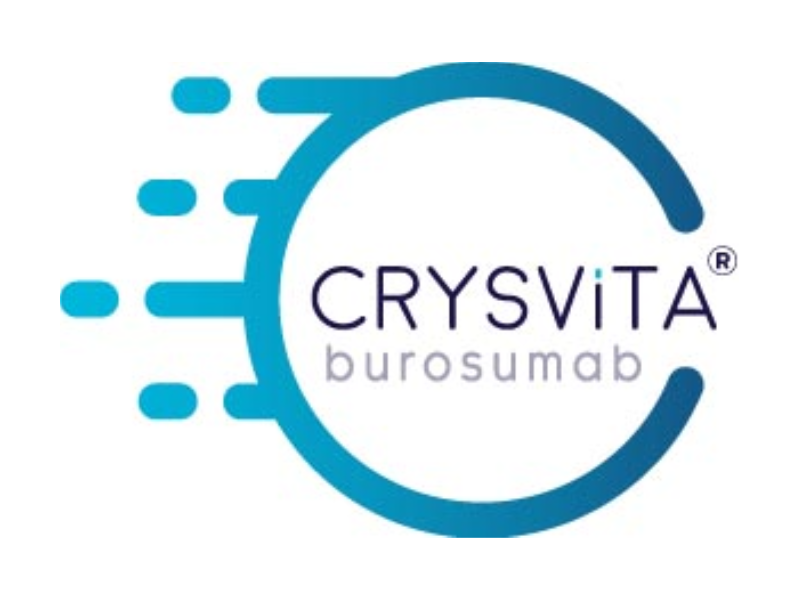
www.crysvita.com
CRYSVITA (burosumab-twza) is a prescription medicine used used in the treatment of X-linked hypophosphatemia (XLH) in adult and pediatric patients 6 months of age and older. It can also be used in the treatment of FGF23-related hypophosphatemia in tumor induced osteomalacia (TIO) in adult and pediatric patients 2 years of age and older.


